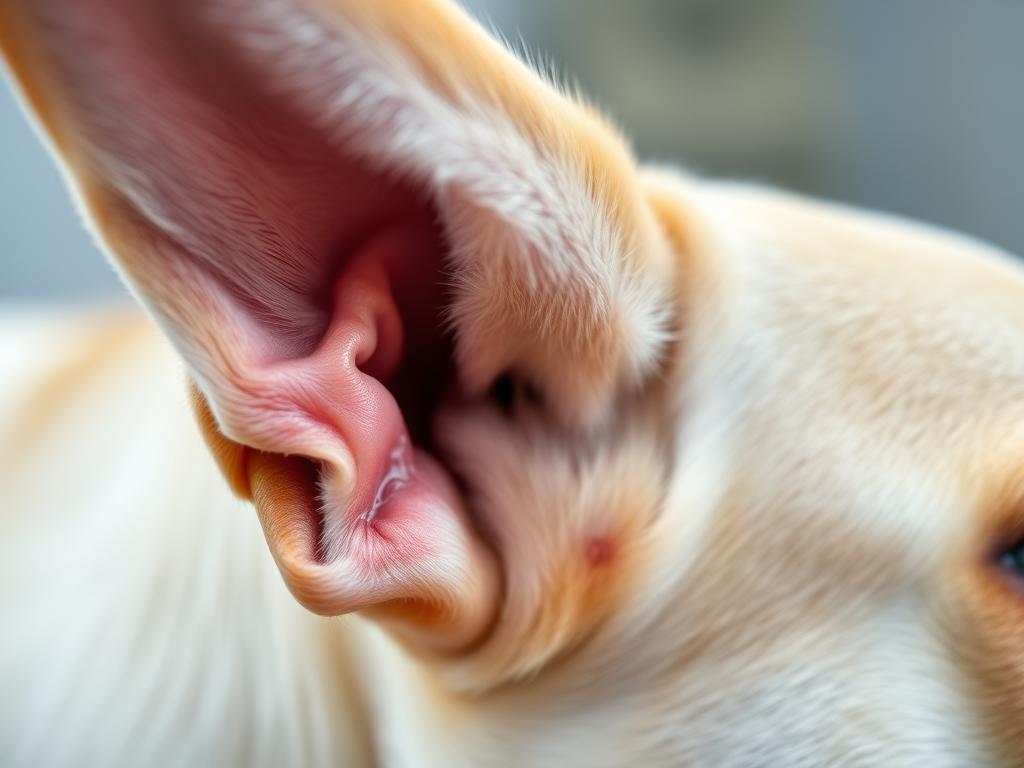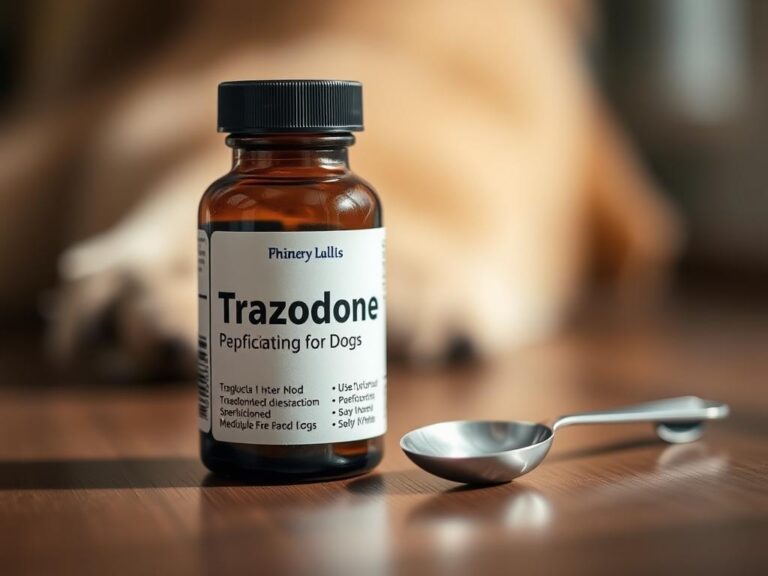Why Does My Dog Keep Shaking His Head?
Is your dog head shaking a cause for concern? While it’s a common behavior, it can also indicate an underlying issue that needs attention. Ear problems in dogs are a frequent reason for this action, and understanding the cause is crucial for providing relief.
Canine ear issues can range from infections to irritations, and identifying the root cause is essential for effective care. In this article, we’ll explore the reasons behind your dog’s head shaking and what you can do to help.
Understanding Normal vs. Problematic Head Shaking in Dogs
It’s essential to recognize whether your dog’s head shaking is a normal behavior or indicative of a problem. Dogs often shake their heads as part of their normal behavior, such as after a bath or when they’re excited. However, excessive or persistent head shaking can be a sign of an underlying issue that needs attention.
When Head Shaking is Normal Behavior
Normal head shaking in dogs can occur for several reasons, including:
- Relieving water or debris from their ears after swimming or bathing
- Expressing excitement or playfulness
- Relieving an itch or irritation in the ear
In these cases, the head shaking is typically short-lived and doesn’t recur frequently.
Signs That Head Shaking is a Problem
If your dog’s head shaking is accompanied by other symptoms, it may indicate a problem. Some signs to look out for include:
- Persistent or frequent head shaking
- Redness, swelling, or discharge in the ear
- A strong odor from the ear
- Changes in appetite or behavior
It’s crucial to monitor your dog’s behavior closely and consult a veterinarian if you notice any of these signs.
Breed Predispositions to Ear Problems
Some dog breeds are more prone to ear problems due to their ear anatomy. Breeds with floppy ears, such as Cocker Spaniels and Basset Hounds, are more susceptible to ear infections because their ears trap moisture and debris. Similarly, dogs with narrow ear canals, like Poodles, can be more prone to ear issues.
Understanding these breed predispositions can help you be more vigilant about your dog’s ear health.
Common Causes of Why Does My Dog Keep Shaking His Head
It’s not uncommon for dogs to shake their heads, but identifying the underlying cause is essential. Head shaking can be a sign of discomfort or pain in the ear, and there are several common issues that might be responsible.
Ear Infections (Bacterial, Yeast, or Both)
Ear infections are a prevalent cause of head shaking in dogs. These infections can be bacterial, yeast-related, or a combination of both. Symptoms include redness, discharge, and a foul odor from the ear. Dogs with ear infections often shake their heads or scratch their ears to alleviate the discomfort.
Ear infections are more common in certain breeds, such as those with floppy ears, as moisture can become trapped, creating an ideal environment for bacteria and yeast to thrive.
Ear Mites and Parasites
Ear mites are tiny parasites that live in the ear canal and feed on wax and oils. They are highly contagious and can cause significant irritation, leading to head shaking. Common signs of ear mites include dark discharge that resembles coffee grounds and intense scratching.
- Ear mites are more common in puppies and dogs that spend a lot of time outdoors.
- Regular checks and appropriate treatments can help manage ear mite infestations.
Foreign Objects in the Ear Canal
Sometimes, dogs may shake their heads due to foreign objects lodged in their ear canal. These objects can range from grass seeds to small toys. If you suspect a foreign object is causing the issue, it’s crucial to consult a veterinarian to avoid causing further damage.
Foreign objects can cause immediate and severe irritation, leading to head shaking and potentially more serious complications if not addressed promptly.
Understanding these common causes can help dog owners take the first step towards identifying the issue and seeking the right veterinary care. Regular ear cleaning and checks can prevent some of these issues, but persistent head shaking should always be investigated further.
More Serious Conditions That Cause Head Shaking
Head shaking in dogs can sometimes signal severe health issues that require immediate veterinary attention. While it’s common for dogs to shake their heads, persistent or violent shaking can be a sign of an underlying condition that needs to be addressed.
Ear Hematomas
An ear hematoma is a collection of blood within the ear flap, often caused by vigorous head shaking or scratching. This condition can be painful for dogs and may require surgical drainage to prevent further complications. If your dog develops an ear hematoma, it’s crucial to seek veterinary care to address both the hematoma and its underlying cause.
Allergies and Skin Conditions
Allergies and skin conditions are another common cause of head shaking in dogs. Allergens can irritate the ear canal, leading to inflammation and discomfort. Dogs with allergies may shake their heads in an attempt to relieve the itchiness and pain. Identifying and managing allergies is key to reducing head shaking caused by these conditions.
Neurological Issues
In some cases, head shaking can be a sign of neurological issues. Conditions such as canine idiopathic head tremors or other neurological disorders can cause involuntary head movements. While less common, these conditions are serious and require a thorough veterinary examination to diagnose.
Ear Polyps and Tumors
Ear polyps and tumors, though rare, are serious conditions that can cause head shaking in dogs. These growths can obstruct the ear canal, leading to discomfort, infection, and other complications. Veterinary evaluation is necessary to determine the presence and nature of any growths within the ear canal.
Understanding these more serious conditions can help dog owners recognize when their pet needs immediate care. If your dog’s head shaking persists or is accompanied by other concerning symptoms, consulting with a veterinarian is the best course of action.
Diagnosing the Cause of Your Dog’s Head Shaking
Determining the cause of your dog’s head shaking involves a combination of observation, veterinary examination, and diagnostic tests. As a dog owner, it’s essential to know when to seek professional help and what to expect during the diagnostic process.
When to See a Veterinarian
If your dog is shaking its head persistently or showing signs of discomfort, it’s crucial to consult a veterinarian. Head shaking can be a symptom of an underlying issue that needs to be addressed. Your vet will help determine the cause and recommend the appropriate treatment.
What to Expect During a Veterinary Examination
During a veterinary examination, your dog will undergo a thorough physical check-up, including an examination of the ears. The vet will look for signs of infection, inflammation, or other abnormalities. A dog ear examination is a critical part of diagnosing the cause of head shaking.
Diagnostic Tests Your Vet May Perform
To determine the underlying cause of your dog’s head shaking, your vet may perform various diagnostic tests for dogs. These may include:
| Test | Purpose |
|---|---|
| Otoscopy | To visually examine the ear canal and eardrum |
| Ear Cytology | To check for infections or parasites |
| Cultures | To identify bacterial or fungal infections |
| Imaging Tests (X-rays, CT scans) | To rule out underlying conditions or foreign objects |
A veterinary diagnosis is crucial in determining the best course of treatment for your dog. By understanding the cause of the head shaking, you can work with your vet to provide the most effective care.
Treatment Options and Home Care
Understanding the cause of your dog’s head shaking is crucial in deciding the best course of treatment and care. The diagnosis will guide the treatment plan, which may include a combination of medication, professional treatments, and home care.
Medication and Professional Treatments
The treatment for your dog’s head shaking will depend on the underlying cause. For instance, if the cause is an ear infection, your veterinarian may prescribe antibiotics or antifungal medication to clear up the infection. In cases where allergies are the culprit, anti-inflammatory medications or steroids might be recommended to reduce swelling and discomfort.
In some cases, professional treatments such as ear flushing may be necessary to remove debris or wax from the ear canal. This procedure is typically performed by a veterinarian and may require sedation to ensure your dog’s comfort.
Proper Ear Cleaning Techniques
Proper ear cleaning is an essential part of dog ear care and can help prevent infections. To clean your dog’s ears, you’ll need a dog ear cleaning solution and some cotton balls or pads. Gently lift your dog’s ear flap and pour some cleaning solution into the ear canal. Massage the base of the ear to help the solution spread, then let your dog shake its head. Use a cotton ball or pad to wipe away any debris or excess solution.
It’s crucial to avoid inserting anything into the ear canal, as this can cause damage or push debris further in. Regular ear cleaning can help reduce the risk of infections and other issues.
Home Remedies and Supportive Care
In addition to professional treatments, there are several home remedies and supportive care measures you can take to help your dog. For example, applying a warm compress to the affected ear can help reduce discomfort and promote drainage.
- Keep your dog’s ears dry, especially after swimming or bathing.
- Regularly inspect your dog’s ears for signs of infection or irritation.
- Consider using ear drying solutions after swimming or bathing.
Preventing Future Episodes
Preventing future episodes of head shaking requires a combination of good ear hygiene, regular veterinary check-ups, and being aware of potential issues. Regular ear cleaning and monitoring for signs of infection or discomfort can help identify problems early on.
By working closely with your veterinarian and following their recommendations, you can help prevent future episodes of head shaking and keep your dog comfortable and healthy.
Conclusion
Understanding why your dog keeps shaking his head is crucial for providing the best dog care. By recognizing the signs of normal versus problematic behavior, you can identify potential issues early on. Common causes such as ear infections, ear mites, and foreign objects in the ear canal can be addressed with proper veterinary care.
Regular ear cleaning and inspections are vital components of canine health maintenance. By being proactive, you can help prevent future episodes of head shaking and related discomfort. It’s essential to work closely with your veterinarian to determine the best course of treatment and develop a plan for maintaining your dog’s ear health.
By prioritizing your dog’s ear health, you can contribute to their overall well-being and quality of life. Stay informed, be vigilant, and seek professional advice when needed to ensure your dog receives the best possible care.





